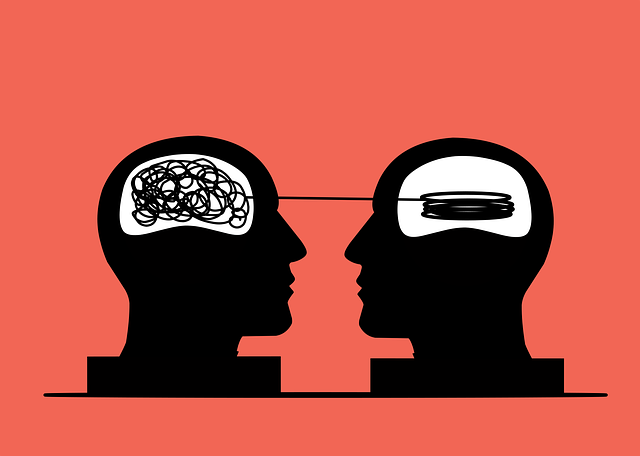Mental health patients with serious psychological conditions benefit greatly from inpatient hospital treatment. Such care becomes essential for patients who require more support than standard outpatient services. This paper outlines the fundamental aspects of hospital-based psychiatric care along with its various therapeutic approaches and expectations for recipients and possible advantages and obstacles of the treatment program.
Understanding Inpatient Mental Health Care
Patients who receive mental health treatment in hospital facilities or specialized settings stay there for an extended period while professionals deliver intensive psychiatric care. The acute mental health crisis facility functions to support patients who need a structured setting beyond outpatient programs because their symptoms cannot be managed successfully in these environments.
Health professionals recommend the inpatient setting for patients experiencing critical mental health symptoms which include suicidal thoughts or severe depression or psychosis or acute anxiety when the potential danger to themselves or others reaches dangerous levels. The main target of inpatient care involves stabilizing patients’ mental health conditions before building a foundation for lasting recovery.
Who Needs Inpatient Mental Health Care?
All people with mental health struggles do not require admission to hospital facilities. Inpatient mental health treatment becomes essential when people require care that involves any of these conditions.
Severe Emotional or Behavioral Disturbances: Patients under crisis conditions including extreme depression or manic or psychotic states can get important help through continuous healthcare services at mental institutions.
Risk of Harm: Healthcare facilities provide inpatient care to patients who pose risks to themselves or violence toward others or self-harm to maintain their safety under constant supervision.
Inability to Cope with Daily Life: The severity of symptoms prevents a number of patients from performing routines needed to function in their day-to-day lives. These mental health cases require hospitalization because patients need a controlled environment dedicated to their recovery.
Treatment Resistance:Professional supervision allows patients who failed to respond to outpatient treatments through therapy and medications to benefit from inpatient care to improve their treatment plans.
Treatment Approaches in Inpatient Mental Health Settings
Multiple therapeutic strategies exist within inpatient mental health facilities which assist patients to enhance their mental health conditions. Treatment options in mental health facilities match the needs of every patient and adapt according to facility background and clinical condition severity. Common approaches include:
Medication Management: Patients undergoing inpatient treatment commonly need psychiatric medicines since these medications help control their mood while decreasing symptoms alongside neurotransmitter management. Healthcare staff continuously track psychiatric drugs both for assessment of medication success and for controlled side effect management.
Individual Therapy: The essential element of inpatient mental health care focuses on psychotherapy treatment. Patients receive one-on-one care from therapists who help identify mental health problem origins before teaching coping mechanisms and helping change unconstructive thinking patterns.
Group Therapy: The collective therapy experience permits individuals to socialize with people dealing with comparable issues. A supportive therapeutic environment allows persons to recognize that they never have to face their challenges without support while they receive valuable input about coping strategies from their peers.
Cognitive Behavioral Therapy (CBT):The therapy works by helping patients modify both their harmful thoughts and unhelpful behaviors which trigger emotional problems. The mental healthcare facility uses this tool to help patients recover from depression as well as anxiety disorders and post-traumatic stress disorder (PTSD).
Family Therapy:The recovery process in inpatient facilities incorporates family therapy that teaches relatives how to create support for their recovering patient. Such sessions become crucial for family system members to build understanding and enhance their communication abilities.
Holistic Approaches:
Medical facilities that deliver inpatient care provide patients with alternative treatment methods which include art therapy and music therapy alongside yoga practice and meditation and mindfulness programs. Patients receive alternative treatments in inpatient facilities which strengthen their emotional abilities and minimize their stress and provide better mental well-being.
The Benefits of Inpatient Mental Health Treatment
Structured Environment: Inpatient care structures create an environment which allows patients to feel wholesome protection through constant support. A stable environment emerges from the structure of daily schedules along with regular meals along with therapy sessions and ongoing supervision which provides stability to patients during unpredictable times.
24/7 Supervision and Support: The main benefit of patient care under hospitalization is that staff provide constant oversight to patients. The constant supervision alignment makes sure patients receive fast support when emergencies occur or need help at any time.
Comprehensive Care: Inpatient mental health care operates as a complete healthcare system that uses teams of multiple medical experts to serve patients. A group of psychiatrists and psychologists along with social workers and nurses alongside other healthcare professionals combine their expertise to deliver comprehensive support to patients under the same roof.
Safety: Inpatient treatment facilities allow vulnerable patients who display suicidal tendencies to stay in a controlled environment which offers continuous surveillance. The facility maintains preventive measures to safeguard both patients from hurting themselves and attacking others.
Specialized Treatment for Co-occurring Disorders: Several inpatient medical institutions provide specialized healthcare to treat patients who have simultaneous mental health problems alongside substance abuse disorders. The treatment program provides complete medical care to patients who require simultaneous treatment of both medical conditions.
The Challenges of Inpatient Mental Health Treatment
The positive features of inpatient mental health care come with several obstacles to consider.
Cost: Curative treatment under inpatient care proves to be expensive because uninsured people or persons with insufficient protection face high medical expenses. The expenses of receiving treatment extend past the hospital’s facility fees to encompass all prescribed therapeutic treatments and medicinal drugs.
Length of Stay: The extended period of hospitalization in an inpatient facility generates feelings of frustration along with disconnect from personal home environment and daily routine activities for certain patients. When treating severe medical conditions additional time in hospital care becomes necessary.

Stigma: Some doctors and patients face an ongoing stigma about mental health treatment so inpatient facility patients might experience shame because of their condition. People who face discrimination might make choices to avoid obtaining necessary medical attention.
Transitioning to Outpatient Care:
People leaving inpatient care will encounter difficulties adjusting to their normal routines after their hospital stay finishes. The recovery path requires sustained therapy and support together with community resources to prevent relapse as well as further crises.
The Road to Recovery: Moving Beyond Inpatient Care
The essential treatment of acute conditions through inpatient mental health facilities forms only the beginning of recovery which spans past hospital discharge. Post-stabilization patients start outpatient therapy while joining support groups for continued care and long-term progression of their coping skills.
A person leaving inpatient treatment needs a complete aftercare plan that must include medical treatment alongside therapy sessions as well as neighbourhood support networks. Individuals undergoing recovery benefit from peer support groups that tackle depression or anxiety because these groups offer supplemental assistance together with recovery resources.



